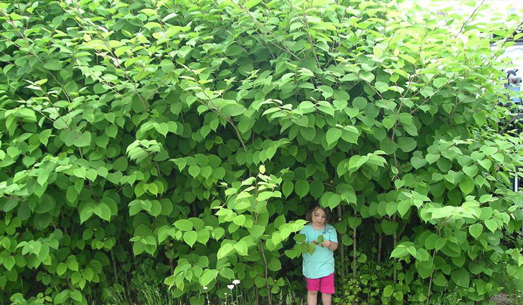The spread of Japanese Knotweed and other invasive non-native species (INNS) has been subject to control for some time. The Infrastructure Act 2015 became law on 12 February 2015 and amends section 14 of the Wildlife Act 1981 to introduce new powers which can compel landowners to take action on INNS including Japanese Knotweed. So writes Helen Wheddon, Partner, Stevens & Bolton LLP.
More importantly, for the first time it gives the authorities the right to enter onto your land to do works necessary to eradicate Japanese Knotweed. There are also powers to enter premises to decide whether to make an order, give notice or investigate non-compliance. A code of practice will be drawn up to assist those affected by these new powers; this is not yet in place so there remains uncertainty as to what these new powers will mean and how they will be exercised in practice.
Landlords whose properties are affected by Japanese Knotweed will be able to enter into voluntary Species Control Agreements (‘SCA’) with the authorities to agree what works must be done. Mandatory Species Control Orders (‘SCO’) can also be made requiring a landlord to control any Japanese Knotweed on their land. A landlord who unreasonably fails to comply with a SCO, or obstructs works specified in it, may be liable to up to six months’ imprisonment and/or a fine of up to £40,000.
SCOs can only be made where Japanese Knotweed is present and a landlord has not complied with a SCA; refuses or is unlikely to enter into a SCA; the authority cannot identify the owner or it considers the order otherwise necessary. If the works specified in the SCO are not carried out, the authority may carry out the clean-up itself and recover the incurred costs.
As with many things, prevention is better than cure. It is better for landlords to know there is a problem and deal with it, long before being served with a SCO. As the authorities will check Land Registry for details of owners of rented property, landlords should always ensure their address details are up to date. It can be useful to give a second contact address, often ‘care of’ a managing agent or solicitor as any formal notices will be sent to this address. They should ensure you receive any initial notice served.
Tenancy agreements should also be reviewed. Do they contain notice clauses, requiring tenants to send to the landlord any formal notices received at the property, as are seen in commercial leases? In addition if tenants are responsible for garden or external areas, is there any obligation on tenants to immediately notify landlords if Japanese Knotweed is spotted? Can tenancy agreements be redrafted to make tenants responsible for dealing with any Japanese Knotweed found at the property during their tenancy? Would tenants accept this?
Landlords may want to check there are no set off provisions in tenancy agreements to ensure tenants affected by clean up works do not claim a rent rebate or reduction for any interruption or interference with their occupation from works being carried out.
On a practical basis, properties should be regularly and carefully inspected. Outdoor areas can be overlooked. Properties adjoining railway lines are notorious for Japanese Knotweed. The weed can grow at up to 20mm a day so it can quickly take root. It can then be difficult to identify the source, to require that the neighbouring owner from whose property it has spread should deal with it.
Japanese Knotweed can grow through concrete and foundations so it is a potentially serious issue for landlords letting out their properties if left unchecked, quite apart from the new regulatory powers introduced last month. Insurance provisions should also be checked to see if there are any requirements related to Japanese Knotweed that should be complied with.









Taking actions against Japanese Knotweed should be done by some governmental institutions. Furthermore if needed landlords must not stay and do nothing. If both fractions start to help each other it could greatly benefit either side.